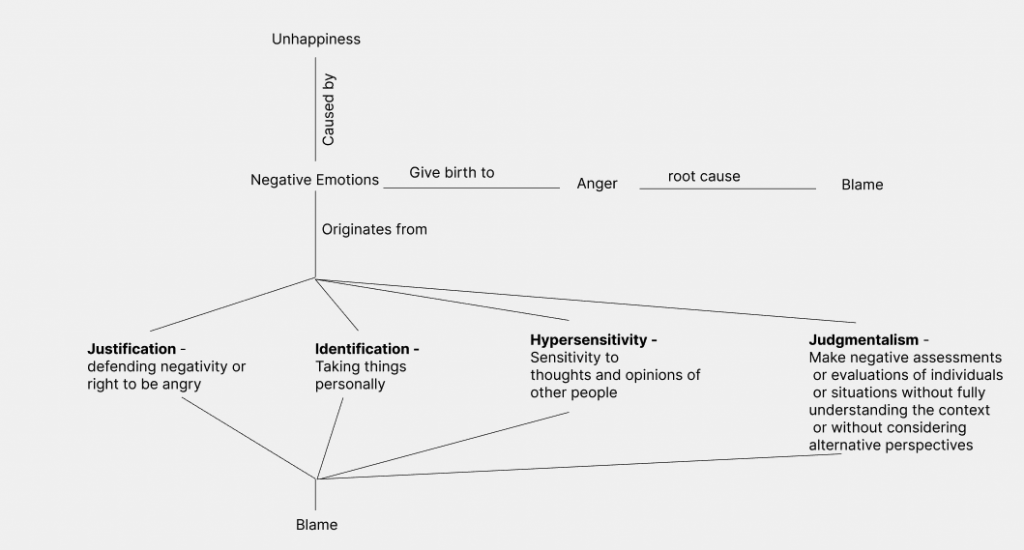Blame and unhappiness are linked directly with each other, as the more blame is present in one’s life, the less likely they are to experience happiness. There are different ways blame impacts one’s life:
Nagativite Emotions: Blame is often associated with negative emotions like anger, resentment, guilt, and frustration. These emotions are obstacles to experiencing happiness, as they can lead to stress, anxiety, and a general sense of unhappiness.
Strained Relationships: When individuals blame others or themselves, it creates a hostile and confrontational atmosphere, making it challenging to maintain positive and fulfilling relationships. Healthy relationships are a significant source of happiness.
Powerlessness: Excessive blame can lead to a mindset where one feels they have no control over their circumstances or emotions. This sense of powerlessness can undermine happiness.
Increased Stress: Constantly blaming others or oneself can result in chronic stress and anxiety. Continual rumination on who is at fault and what went wrong can keep the mind in a state of unrest, making happiness elusive.
Lack of Problem Solving: Blame often focuses on the past and who is responsible for what has already happened. This can prevent individuals from focusing on finding solutions and making positive changes in the present and future.
Reduced Self-Esteem: Blaming oneself excessively can lead to a decrease in self-esteem and self-worth, as one may start to view themselves as the source of all problems or failures. Low self-esteem is often associated with lower levels of happiness.
This picture shows how blame (for yourself or others) is the cause of most of our unhappiness.

It’s important to address issues and hold individuals accountable for their actions when necessary. However, doing so in a constructive and compassionate manner is more likely to lead to personal growth and happiness











